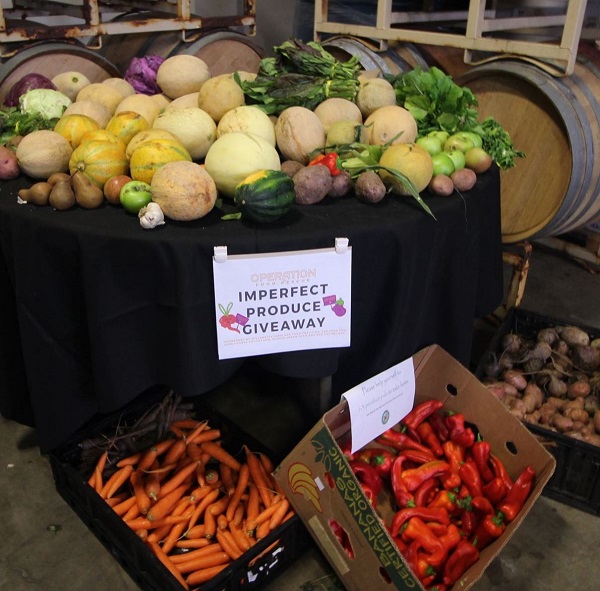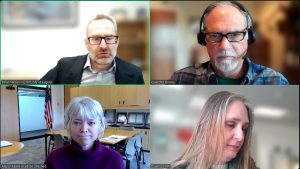Reducing food waste will reduce methane, warming
2 min read
by Devon Mann
Scientists estimate that at least 25% of today’s warming is driven by methane from human actions.
Landfills are releasing large amounts of planet-warming methane gas into the atmosphere from the decomposition of organic waste. When organic waste like food, wood, or paper decomposes, it emits methane into the air.
Landfills are the third-largest source of methane emissions globally, after oil and gas systems and agriculture. Although methane only accounts for about 11% of greenhouse gas emissions and lasts about a dozen years in the air, because of its chemical bonding structure, it traps 80 times more heat in the atmosphere than carbon dioxide.
Since food waste composes the majority of methane-emitting organic waste in landfills, as individuals and a community, we can reduce organic waste in our landfills by composting food waste. Local haulers provide bins that accept both yard debris and food waste.
In addition to yard debris, the following food waste items can also go in the bin: plate scrapings, meat, bones, dairy, eggs & egg shells, coffee grounds, baked goods, all parts of fruits and vegetables, and all kitchen trimmings.
The combined food waste and yard debris collected is sent to local commercial composting facilities. These facilities use a specialized process to break down organic matter, creating nutrient-rich compost that can be purchased in bags at local retailers.
Currently, local waste haulers only collect yard debris/food waste bins every other week. This pickup frequency can be insufficient for many households; please call and encourage your waste hauler to include the option for weekly yard debris/food waste collection to help reduce atmospheric methane emissions.
See also:
https://www.epa.gov/ghgemissions/overview-greenhousegases#methane
https://www.oregon.gov/deq/ghgp/Pages/Landfill-Methane-Emissions-Reduction.aspx
https://acp.copernicus.org/articles/22/6811/2022/
https://www.eugene-or.gov/3372/Residential-Food-Waste-Collection
This article appears in the Southeast Neighbors September 2022 newsletter. To learn more about the Southeast Neighbors and the Environmental Stewardship committee, visit the SEN Picnic this Saturday Sept. 17 from 3 p.m. to 7 p.m.




